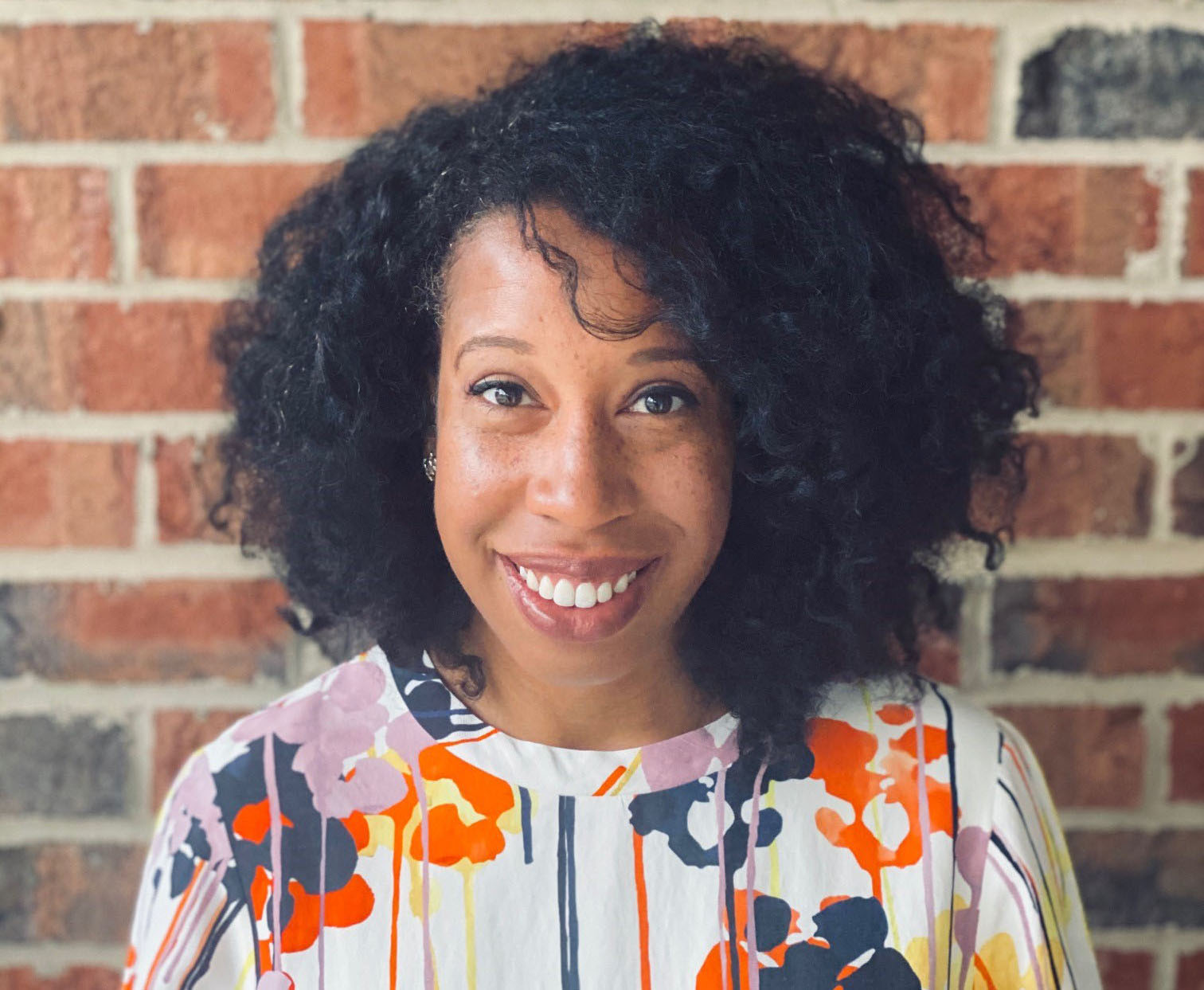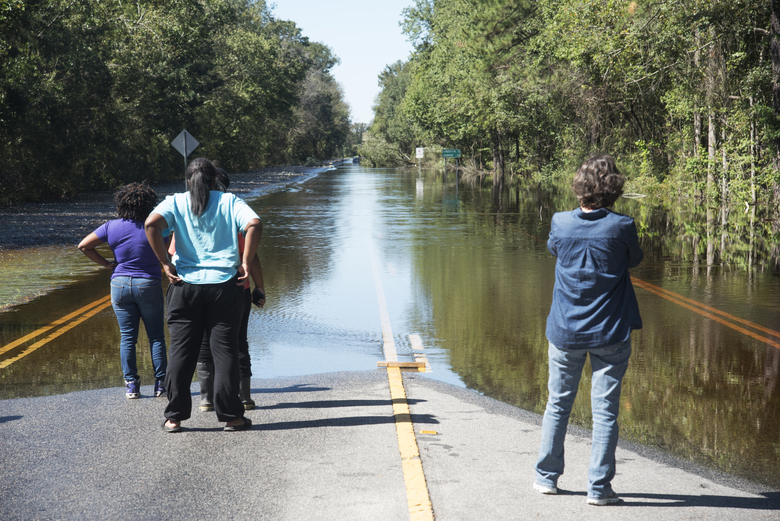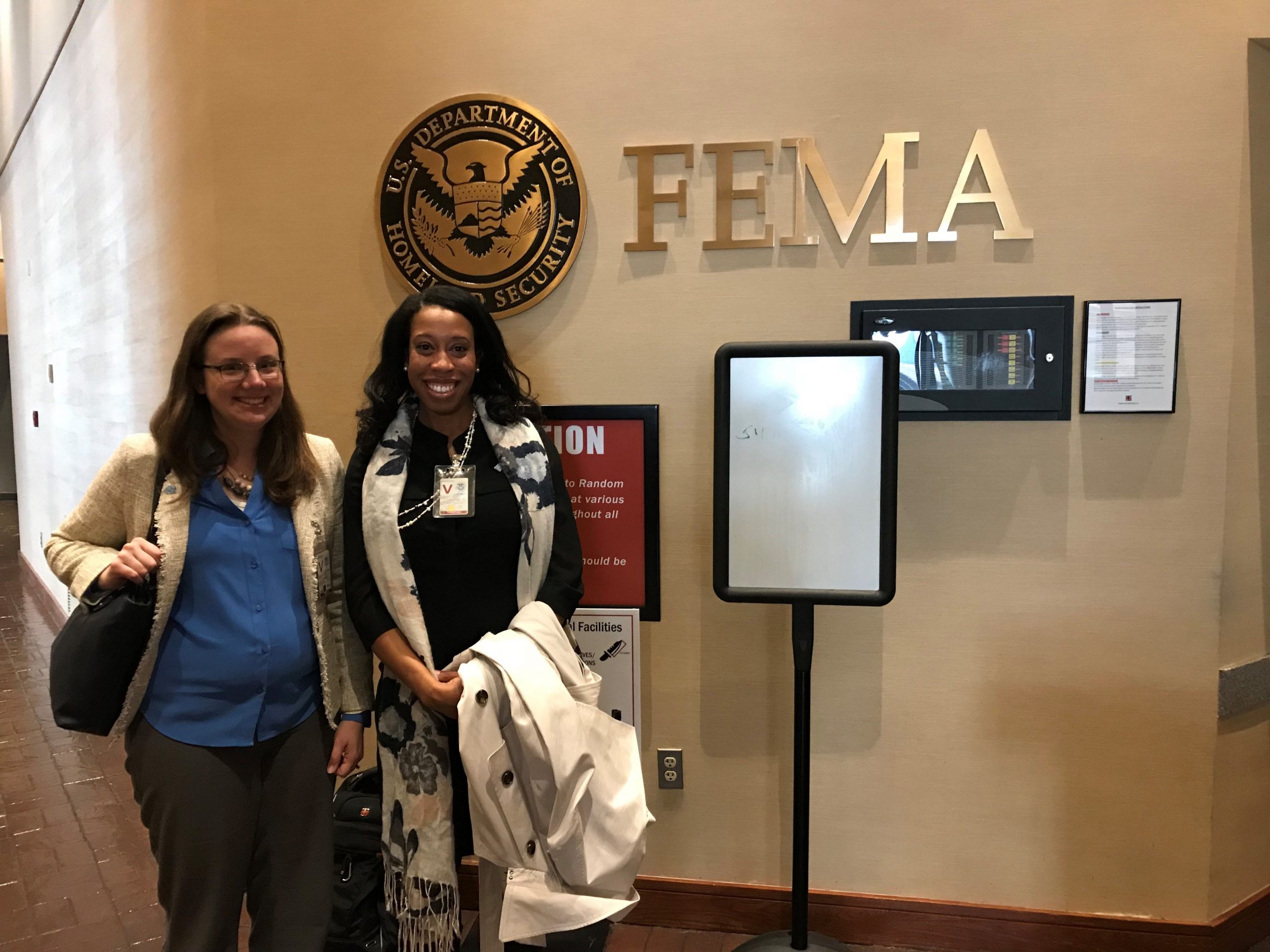Cassandra R. Davis studies the impact of natural disasters on schools and communities, particularly at the K-12 level. Now the public policy professor is turning her attention to the impact of another kind of disaster — a global pandemic — on first-generation college students.

Hanging on the wall of Cassandra R. Davis’ office is a University of Pittsburgh master’s degree certificate that once belonged to her late grandmother, Sara Williams.
It is a daily reminder to Davis of the importance of her own work as an educator.
“I have big shoes to fill,” said Davis, a research assistant professor in Carolina’s department of public policy who received her master’s and Ph.D. from the UNC School of Education. “She was such a trailblazer as a woman of color going to university and getting her graduate degree in the ’60s. … People knew she cared about the students. She always did what was right for them.”
When UNC transitioned to remote learning after spring break, Davis began to worry about the students in her First Year Seminar in Public Policy. How would they deal with financial expectations once they arrived home? What about those with caregiving responsibilities? Would they have access to a space to study, library resources and reliable internet access?
After the semester was over, she began thinking more about first-generation college students and the challenges they faced once they returned home. Such students make up about 20% of Carolina’s undergraduate student population.

Davis’ research focuses on the impact of natural disasters like hurricanes on schools and communities. Now she’s turning her attention to the impact of a global pandemic — a different kind of disaster.
Davis will lead a group of researchers from UNC-Chapel Hill, the University of Pittsburgh, Florida A&M University, the University of Colorado Boulder, Rowan University in Glassboro, New Jersey, and Bucknell University in Lewisburg, Pennsylvania. The project team members — a mix of sociologists, engineers, public health and public policy scholars — will examine the impact of COVID-19 on college persistence among first-generation college students.
They will survey students this summer, then again when they return to classes in the fall and likely beyond that.
“We’re also asking them to participate in PhotoVoice, a research methodology that allows participants to address and deconstruct existing difficulties. Students will take photos of their study space and describe it,” Davis said. “Is it a shared space? We may think that students are going home to an equivalent of a dorm room, but often that’s not the case. We really want to give them the power and ownership to define that space.”
“Our overall goal is to analyze the information quickly and get our results out to higher education institutions so they can make decisions on effectively supporting our most vulnerable populations,” she added.

Davis recently wrote a piece for EdNC about how, as K-12 schools respond to COVID-19, they should take lessons from educators who were affected by natural disasters.
She and colleagues examined the impact on millions of students and teachers in North Carolina and Texas from the disruptions caused by Hurricane Florence in 2018 and Hurricane Matthew in 2016. Their research showed that teachers needed support immediately after the storms but often didn’t get it. They also brought to light the extended timeline needed for recovery.
“Even in 2020, some of those schools say they haven’t fully recovered from the impact of those hurricanes, and there are huge disparities across school districts, in terms of access to resources,” Davis said.
In a policy brief about promising practices after Hurricanes Matthew and Harvey, Davis emphasized that a focus on the mental health needs of both students and educators was important. That will also be crucial as K-12 and higher education leaders deal with the lasting effects of COVID-19, she said
“After disasters, teachers were often on the front lines; they became counselors, medics and more,” said Davis, whose previous work has been supported by the National Science Foundation. “We need to understand that faculty dealing with the lasting effects of a pandemic might be thrust into those roles, too.
“We must make sure we’re meeting the mental health needs of our students and the faculty, staff and graduate students who support them.”
By Kim Spurr, College of Arts & Sciences
